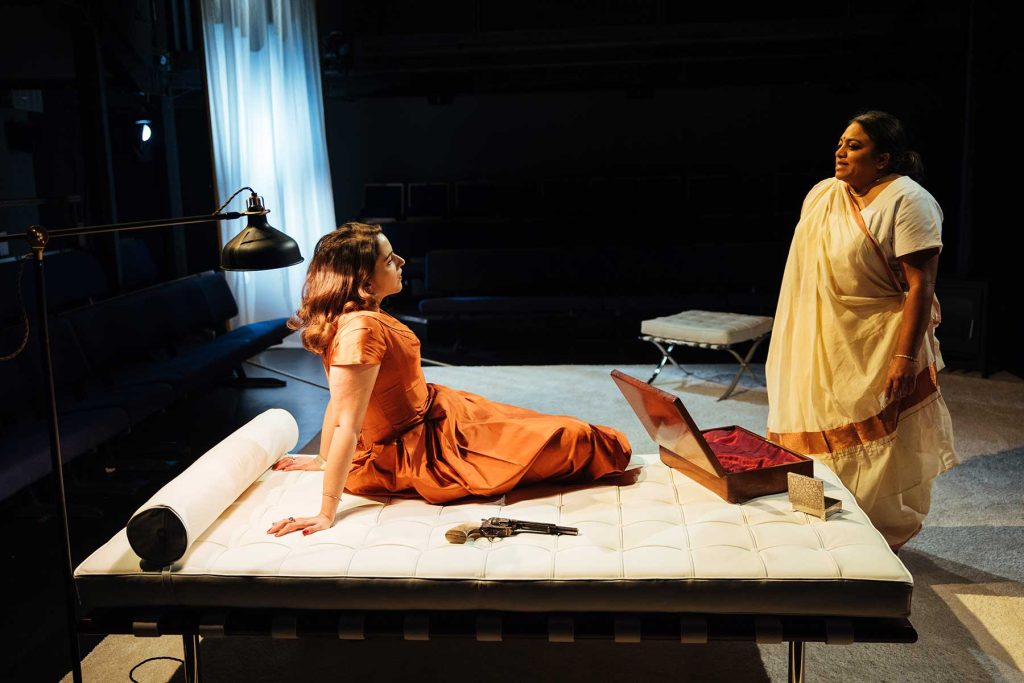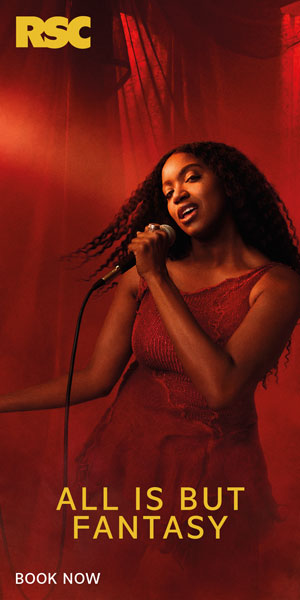
In 1940’s London, retired film star Hedda paces her bijou Chelsea living room like a caged tiger. Having forsaken glamour for security, Hedda tolerates husband George Tesman’s attempts to please her, but longs to live on her own terms. Henrik Ibsen’s original 1891 work expounded the restrictions that Hedda Gabler faced as a woman intent on forging her own destiny.
Tanika Gupta’s retelling infuses themes of racial prejudice and scandal, as Hedda clings to a veneer of respectability while concealing her Anglo-Indian parentage. The appearance of an estranged lover bursts Hedda’s humdrum bubble, but the drama our heroine longed for quickly descends into chaos.
Gupta’s reimagining adds further layers of tension to the already claustrophobic narrative, enhanced by the single-room set designed by Simon Kenny. Hedda’s Indian mother Shona, played with pithy sagacity by Rita Fatania, poses as a maid, constantly reminding Hedda that “the English are the same” as she daubs Hedda with powder. While Hollywood’s Hays Code prohibited people of colour assuming leading roles, the British film industry followed America’s lead and Hedda retired before too many questions were asked.
The London scene that Hedda and her film-director husband George, an affable but oblivious Joe Bannister, inhabit is suffocating, where scandal means ostracism. Casual references to race divisions on planes and people having ‘a touch of the tar brush’ demonstrate the ingrained white elitism of 1940’s England.
The sense of displacement is acute, three years since the end of the war and one since Indian independence. This is most palpable in the lead and Pearl Chanda’s Hedda is mesmerising. She radiates contempt and desire in equal measure, although her English boarding school upbringing means this bubbles beneath a diaphanous veil of courtesy. George’s Aunt Julia (Caroline Harker) speaks longingly of India through the lens of a coloniser, mentioning her multiple servants and lavish trips.
In-keeping with Ibsen’s realist work, the play is dialogue heavy, with a sense of urgency and ennui which is captured well by director Hettie Macdonald. Every interaction is measured, as Hedda’s backstory is gradually revealed to the audience. Aside from Shona, the only person who knows Hedda’s ancestry is the prodigal playwright Leonard, an earnest Jake Mann, who is also mixed race, but white-passing. Recovering from shellshock, he has poured his soul into a weighty manuscript based on Hedda’s life, the very existence of which threatens to expose our heroine.
This new production delves into the experience of the other. Hedda longs to “consume the world whole” but her wings are clipped not only by her sex, but by her race and stifling class constructs. Achieving her goals has always been dependent upon men appreciating her beauty, such as the lecherous John Brack, played with sleazy charm, by Milo Twomey, who attempts to extort Hedda upon learning her secret. With multiple twists and insightful traverses into the racial-social politics of the time, Gupta’s new work shows how much the world has changed since Ibsen’s original work, and how much it has stayed exactly the same.
Hedda is showing at the Orange Tree Theatre until Nov 22.































